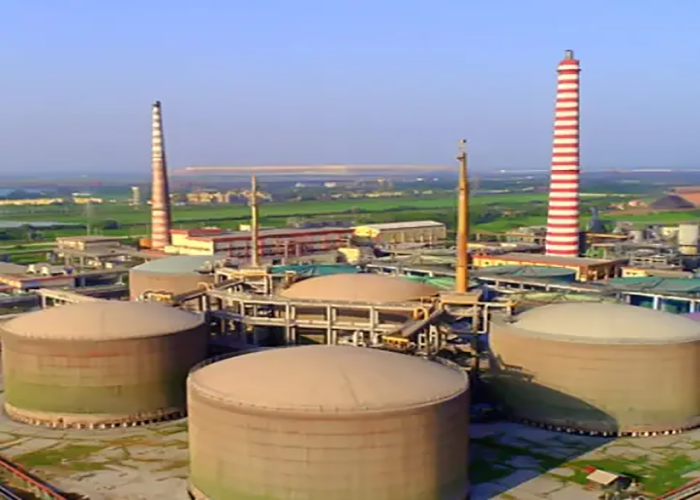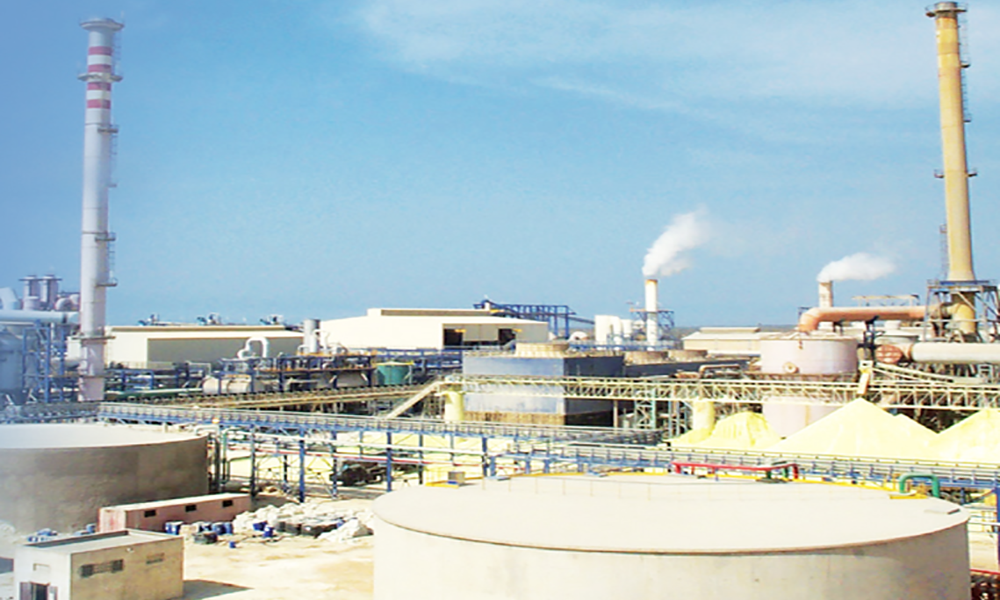Water and Wastewater Treatment Solutions for Phosphate Industries Using STP, ETP, WTP, WWTP, RO, and Industrial Technologies

The phosphate industry in India plays a key role in producing fertilizers, chemicals, and detergents, which support agriculture and various manufacturing sectors. India is among the top global producers of phosphate-based fertilizers, with both public and private sector players actively involved in the extraction and processing of phosphate rock.
Maharashtra, being an industrial hub, hosts several phosphate-processing plants and fertilizer units. The region's strategic location and infrastructure support large-scale chemical industries. However, the production process involves significant water usage and chemical handling, which makes wastewater management a critical component of operational sustainability and regulatory compliance.
Phosphate industries need water for slurry processing, washing, cooling, and chemical manufacturing operations.
Water is central to the phosphate industry's operations. It is extensively used in wet-process phosphoric acid production, where phosphate rock is converted using sulfuric acid in aqueous conditions. This process generates significant volumes of slurry, requiring constant water input.
Apart from chemical processing, water is used for equipment washing, gas scrubbing, cooling systems, and transporting slurry through pipelines. The required water must meet specific quality standards and be free from impurities that could interfere with chemical reactions. Efficient water use and recycling are essential to reduce costs and minimize the environmental footprint of phosphate production.
Manufacturing processes, washing, and chemical treatment stages are the primary sources of wastewater generation.
In phosphate industries, wastewater is primarily generated during ore processing, acidulation, scrubbing, and washing stages. When phosphate rock is treated with acids, by-products like fluorides, sulfates, and phosphates enter the water stream.
In phosphate industries, water is not only a raw material but also a carrier of complex chemical reactions. Its responsible use, treatment, and reuse are essential—not just for meeting environmental norms but for ensuring long-term industrial productivity, resource conservation, and a future where industry and nature coexist harmoniously.
Additionally, washing filters, reaction tanks, and cooling towers produce wastewater containing heavy metals, sediments, and chemical residues. Gas scrubbing to control emissions also results in contaminated water. These processes release large volumes of effluent, which, if untreated, can harm the environment and violate pollution control norms.
Wastewater contains acids, phosphates, fluorides, heavy metals, and a high chemical load.
Phosphate industries generate highly acidic and chemically loaded wastewater. It often contains phosphoric acid, fluoride compounds, ammonia, nitrates, and sulfate ions. Depending on the process, heavy metals like cadmium and arsenic may also be present.
This effluent typically has high total dissolved solids (TDS), chemical oxygen demand (COD), and low pH. The contaminants can be toxic to aquatic life and can damage soil if discharged untreated. Therefore, the segregation of wastewater streams and the application of specific treatment methods are essential to manage and control the pollution load effectively.
Wastewater is treated using neutralization, precipitation, filtration, and advanced chemical treatment methods.
Phosphate industry effluent treatment usually begins with neutralization to correct pH levels. Lime or caustic soda is used to neutralize acidic effluents. Following this, precipitation techniques help remove fluorides, phosphates, and metals through coagulation and flocculation.
The following steps include sedimentation, filtration, and, in some cases, activated carbon treatment to reduce chemical residues. Sludge generated in the process is dewatered and disposed of safely. Advanced treatment technologies are introduced to meet zero discharge or reuse standards. These systems ensure compliance with environmental regulations while maintaining efficiency.
RO, MEE, and automation enable phosphate plants to reclaim and reuse treated wastewater efficiently.
To meet the rising need for water conservation, phosphate industries are adopting advanced technologies. Reverse Osmosis (RO) is used to recover purified water from treated effluents. Multi-Effect Evaporators (MEE) are deployed in Zero Liquid Discharge (ZLD) systems to evaporate and condense water for reuse.
Automation systems now allow real-time monitoring of water quality and plant performance. Membrane filtration, nanofiltration, and electrochemical treatment are increasingly being integrated to treat specific contaminants. These innovations not only improve water recycling rates but also reduce operational costs and environmental risks.
Customized water treatment solutions tailored to phosphate industry needs and environmental regulations
We specialize in designing and installing water and wastewater treatment plants specifically for phosphate industries. Our team offers turnkey solutions, including Effluent Treatment Plants (ETP), Water Treatment Plants (WTP), Reverse Osmosis (RO), and Zero Liquid Discharge (ZLD) systems.
Our approach begins with a detailed site analysis to understand effluent characteristics, followed by engineering the most effective and energy-efficient treatment system. We assist in plant automation, maintenance, AMC, and upgradation of existing systems. With a strong focus on compliance, sustainability, and client satisfaction, we provide practical and cost-effective water treatment solutions.
Conclusion: Investing in Water Treatment is Crucial for Phosphate Industry's Future

Conclusion: Investing in Water Treatment is Crucial for Phosphate Industry's Future
Phosphate industries, due to their chemical-intensive operations, must prioritize efficient water and wastewater management. With increasing environmental regulations and growing water scarcity, traditional methods are no longer sufficient. Modern, technology-driven treatment systems are vital for long-term operational success.
By adopting robust ETPs, WTPs, and ZLD systems, phosphate units can reduce freshwater dependency and achieve regulatory compliance. Our customized solutions help industries turn wastewater into a resource, lowering operational costs and safeguarding the environment. A sustainable approach to water management is no longer optional—it's the path forward for responsible industrial growth.

